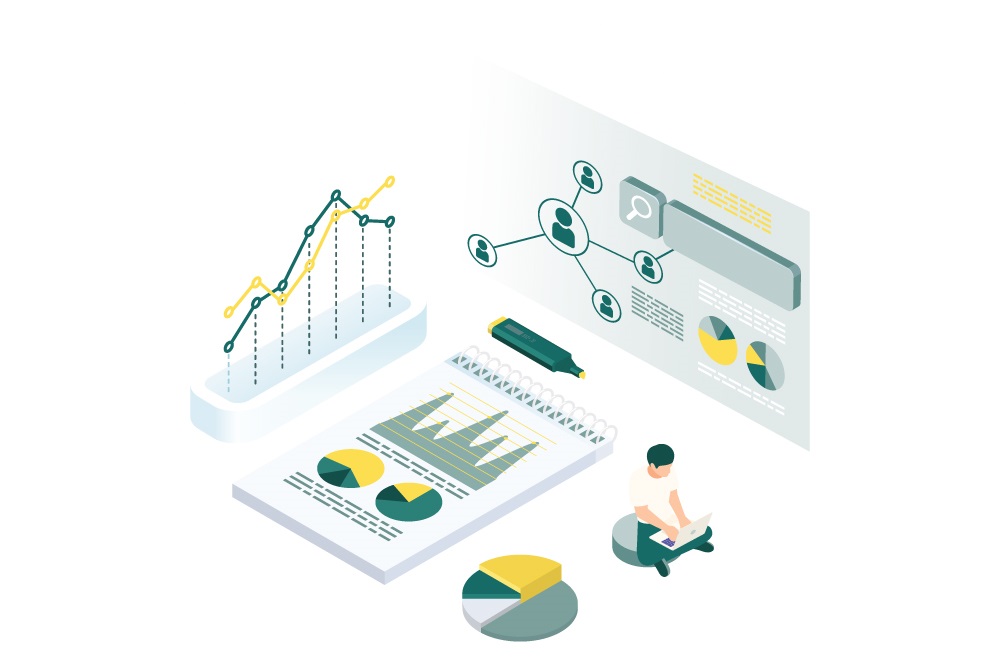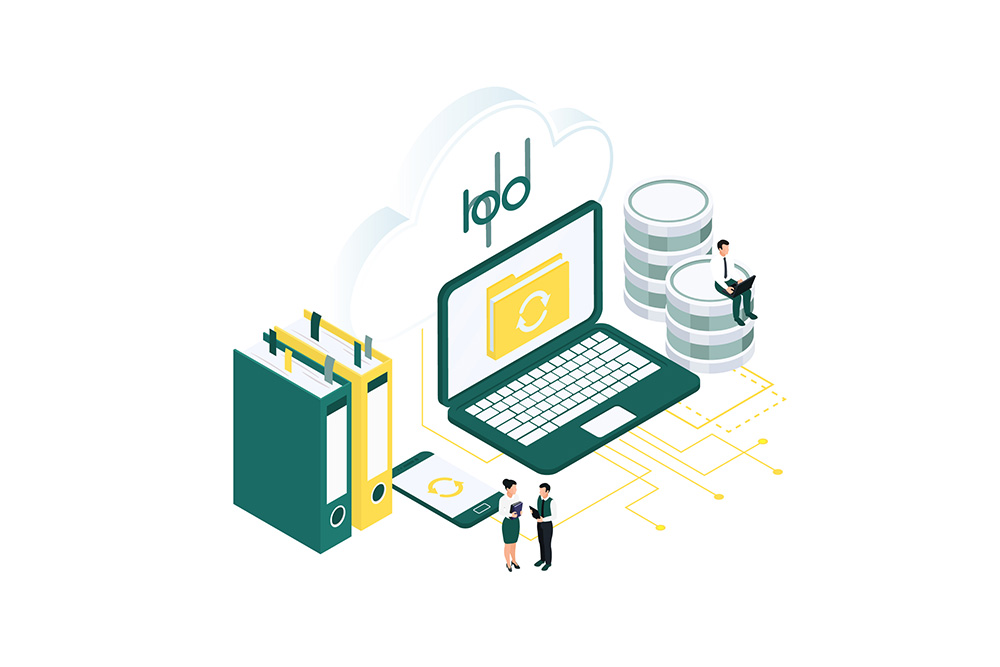
In an era where precision and speed are the cornerstones of financial prosperity, businesses are increasingly turning to advanced solutions to stay competitive and efficient. Artificial Intelligence (AI) has emerged as a revolutionary force, especially when integrated with NetSuite, a leading cloud-based financial software.
This powerful combination is transforming the landscape of financial decision-making, offering unparalleled insights and automation capabilities that are changing the way businesses plan, execute, and grow.
As you navigate the complexities of modern finance, understanding the potential of AI in NetSuite can unlock new levels of strategic thinking and operational efficiency for your firm. From automating routine tasks to providing predictive analytics for informed decision-making, AI is not just an option; it has become a necessity for businesses aiming to thrive in a dynamic and challenging economic environment. In this comprehensive guide, we will explore the transformative power of AI in NetSuite, delving into its capabilities, benefits, and real-world applications that can elevate your financial strategy to new heights. Whether you are a seasoned finance professional or just beginning to explore the potential of AI in your operations, this guide is your starting point for revolutionizing financial decision-making in your business.
Understanding AI in NetSuite: The New Era of Finance
The Power of AI in Financial Management
The advent of Artificial Intelligence (AI) in financial management through platforms like NetSuite is nothing short of revolutionary. AI serves as a robust engine driving the automation and interpretation of financial data at an unprecedented scale and speed. This technological leap means algorithms can now analyze trends, forecast outcomes, and provide actionable insights much quicker than traditional methods. For businesses, this translates into a dynamic and agile financial strategy, where decisions are informed by data-driven insights leading to enhanced accuracy and predictive capability. The integration of AI in financial operations significantly diminishes the time spent on manual tasks, minimizes human errors, and allows finance teams to focus on strategic tasks that add direct value to the business. With AI’s continuous learning and adaptive algorithms, businesses can expect a constantly evolving financial process that becomes more efficient and accurate, tailored to the unique rhythms and needs of the business, ensuring that financial strategies are not just responsive but also proactive in identifying opportunities and mitigating risks.
Enhancing Efficiency with Automation
Automation is one of the primary benefits of integrating AI with NetSuite, revolutionizing traditional finance operations. Imagine the daily grind of manual entries, transaction reconciliations, and compliance checks being efficiently handled by intelligent systems. This shift doesn’t just mean faster processing times; it leads to a dramatic increase in accuracy and a reduction in errors. Automated systems can work around the clock, providing consistent results and enabling human resources to divert their attention to more complex, value-adding tasks. Furthermore, AI-driven automation in NetSuite is not a one-size-fits-all solution; it’s capable of learning and adapting to the specific workflows and needs of each business, ensuring that the automation is as effective and efficient as possible. This means that as your business grows and changes, the AI systems will evolve with you, continually optimizing and refining processes to ensure that your financial operations are running as smoothly and efficiently as possible.
Transforming Decision-Making with Predictive Analytics
Predictive Insights for Proactive Strategies
Predictive analytics stands out as one of AI’s most impactful features in financial management, especially within NetSuite. This technology doesn’t just analyze past financial data; it uses it to predict future trends, giving businesses a considerable advantage in planning and strategy. By understanding potential future scenarios, companies can prepare and adapt their strategies accordingly, whether it’s capitalizing on a predicted upswing in the market or bracing for a potential downturn. This forward-looking approach is invaluable for maintaining a competitive edge and ensuring long-term success. Predictive analytics also plays a crucial role in risk management, helping businesses to identify potential financial pitfalls before they occur and devise strategies to avoid or mitigate them. This proactive approach to financial management allows businesses to navigate the complexities of the market with greater confidence and agility, ensuring that they’re always one step ahead.
Customization and Personalization
In the context of NetSuite, AI’s capability extends beyond general financial management to provide customized and personalized insights. This aspect is particularly crucial because each business has its unique set of challenges, goals, and processes. AI systems in NetSuite are designed to learn and adapt to the specific nuances of each company, continuously refining their algorithms to provide more accurate and relevant insights. This means that the more you use AI in your operations, the better it gets at understanding your business and providing tailored solutions that meet your specific needs. This level of customization ensures that businesses aren’t just adopting new technology but are integrating a solution that continually evolves and adapts to support their growth and success.
Streamlining Operations with Real-time Data
Real-time Reporting for Immediate Insights
The ability to access and analyze financial data in real time is one of the most significant advantages provided by AI in NetSuite. This feature enables businesses to make informed decisions quickly, responding to market changes with agility and precision. Real-time reporting means that financial leaders can monitor the company’s financial health continuously, identifying trends, spotting discrepancies, and making adjustments on the fly. This level of immediacy is crucial in today’s fast-paced business environment, where opportunities and risks can arise suddenly and require quick action. Moreover, real-time data is not just beneficial for decision-makers; it also fosters a more transparent and informed workforce, where team members across the company have access to the financial insights they need to perform their roles effectively.
Enhancing Collaboration Across Teams
The integration of AI in NetSuite enhances collaboration across various departments by providing a unified view of financial data. When teams across an organization can access and understand the same real-time data, they are better equipped to work together towards common goals. This unified approach breaks down silos, promotes a more cohesive strategy, and enhances the overall performance and agility of the business. It ensures that everyone, from the finance team to sales and operations, is aligned and moving in the same direction. Furthermore, with AI-driven insights, teams can collaborate more effectively, using the data-driven insights provided by NetSuite to inform their decisions and strategies. This level of collaboration and alignment is a key factor in driving business success, ensuring that all parts of the organization are working together efficiently and effectively.
Navigating Challenges and Maximizing ROI
While the benefits of AI in NetSuite are clear, it’s also essential to address and navigate the challenges associated with implementing and maximizing this technology. Data privacy and security are paramount concerns, especially as financial data is sensitive and regulated. Businesses must ensure that their AI systems are secure and compliant with all relevant laws and regulations. Additionally, there’s the challenge of ensuring a positive return on investment. Implementing AI in NetSuite requires a strategic approach, including selecting the right tools, training staff, and continuously monitoring and refining the system to ensure it provides value. By addressing these challenges head-on and adopting best practices for AI integration, businesses can maximize the benefits of this technology, ensuring that it not only enhances their financial operations but also drives broader business success and innovation.
Conclusion
In conclusion, the integration of AI in NetSuite is revolutionizing the field of financial management, offering businesses unprecedented capabilities in terms of efficiency, insight, and strategic agility. As AI technology continues to evolve and improve, its role in finance will only become more critical, making now an opportune time for businesses to explore and embrace its potential. By understanding the power of AI in NetSuite and taking a strategic approach to its implementation, businesses can unlock new levels of performance, adaptability, and growth. Encourage readers to consider how AI in NetSuite could revolutionize their financial operations and invite them to comment or reach out for more information or a consultation.
FAQs on AI in NetSuite for Financial Decision-Making
1. What is AI in NetSuite and how does it benefit financial decision-making?
AI in NetSuite refers to the integration of Artificial Intelligence technology within the NetSuite platform, enhancing its capabilities in financial management and decision-making. Benefits include improved efficiency through automation of routine tasks, enhanced accuracy and speed in financial reporting, predictive analytics for forward-looking insights, and personalized experiences that adapt to the unique needs of each business.
2. Can AI in NetSuite help in forecasting and budgeting?
Yes, one of the key benefits of AI in NetSuite is its ability to provide predictive analytics, which is invaluable in forecasting and budgeting. By analyzing historical data, AI can identify trends and patterns, helping businesses make more accurate predictions about future financial conditions and performance, leading to more informed budgeting and financial planning.
3. How does AI enhance real-time reporting and analysis in NetSuite?
AI significantly enhances real-time reporting and analysis in NetSuite by providing immediate access to financial data and insights. It processes data quickly and efficiently, enabling live dashboards and reports that reflect the current financial status of the business. This allows for timely decision-making and the ability to respond swiftly to changing financial conditions.
4. What are the challenges of integrating AI into NetSuite, and how can they be addressed?
Challenges of integrating AI into NetSuite include ensuring data quality and security, managing the change within organizational processes, and achieving a positive ROI. These can be addressed by establishing clear data governance policies, providing comprehensive training to staff, choosing the right AI solutions that align with business needs, and continuously monitoring and adjusting the AI integration to ensure it’s meeting its intended goals.
5. Is AI in NetSuite suitable for all sizes of businesses, or is it better suited for large enterprises?
AI in NetSuite is scalable and can be beneficial for businesses of all sizes. While large enterprises might leverage AI for complex, high-volume financial data analysis and decision-making, small to medium-sized businesses can also take advantage of AI’s efficiency, accuracy, and predictive insights to enhance their financial operations. The key is to understand the specific needs and capacities of the business and to implement AI solutions that are aligned with those needs.





Pingback: Will AI Take Over Accounting? What the Future Looks Like